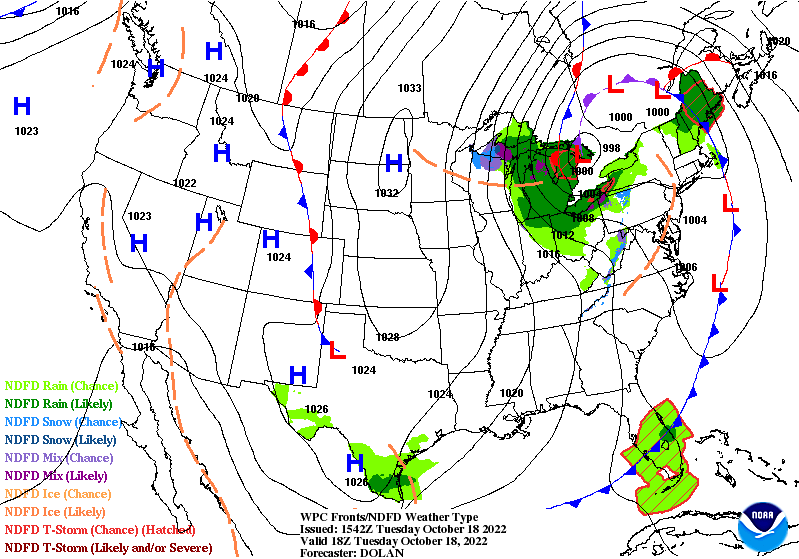First freeze of season may break records, impact 100 million

(NewsNation) — While it’s only a couple of weeks into fall, meteorologists at the Weather Prediction Center (WPC) issued freeze and frost warnings for the Midwest, South, and East on Tuesday, citing the possibility of record-breaking temperatures for the first freeze of the season.
The alerts will affect over 100 million people, reports say, ranging from Eastern Colorado to the Appalachians and in the South to the Gulf Coast.
According to AccuWeather, the early winter unpleasantries are due to pent-up air in the Upper Midwest and Canada, which made its way south on Monday and Tuesday.
With temperature estimated to range between 15 and 30 degrees below average in places such as Memphis and Atlanta, meteorologists predict over 95 possible record lows across the Southeast.
“This first freeze is 10-15 days early at most climate stations,” the National Weather Service in Memphis wrote Tuesday morning, “With Memphis’ mean first freeze day being a bit later at Nov. 12.”
As for the Midwest, the storm shift could mean possible snow due to the Great Lakes, in a phenomenon called lake effect snow.

CNN reported that over the past few days, the eastern Upper Peninsula of Michigan into Wisconsin experienced over a foot of snow.
“Moderate to heavy snow is also expected over portions of northern Michigan and the Upper Peninsula today,” the forecast center said.
The East Coast, as well as the deep Southeast, should expect heavy rains, as the cold storm flushes out over the next couple of days.
“Heavy rainfall and flash flooding is likely to focus along the leading edge of a cold front, which is pushing through Maine today,” the WPC said.
“Some rounds of light rain showers and thunderstorms may materialize over southern Texas and Florida today as the aforementioned cold front pushes through those areas,” the WPC continued.
Due to unforeseen temperatures, the WPC went on to report that some places may see their agriculture affected.
“Their first freeze of the season over the next couple of nights will be particularly impactful to sensitive crops and livestock,” the WPC reported.
But the chilly blast won’t last for long, as “the upper low currently stationed over the Great Lakes and southern Ontario/Quebec will begin lifting north and weakening over the next couple of days,” the WPC said.














